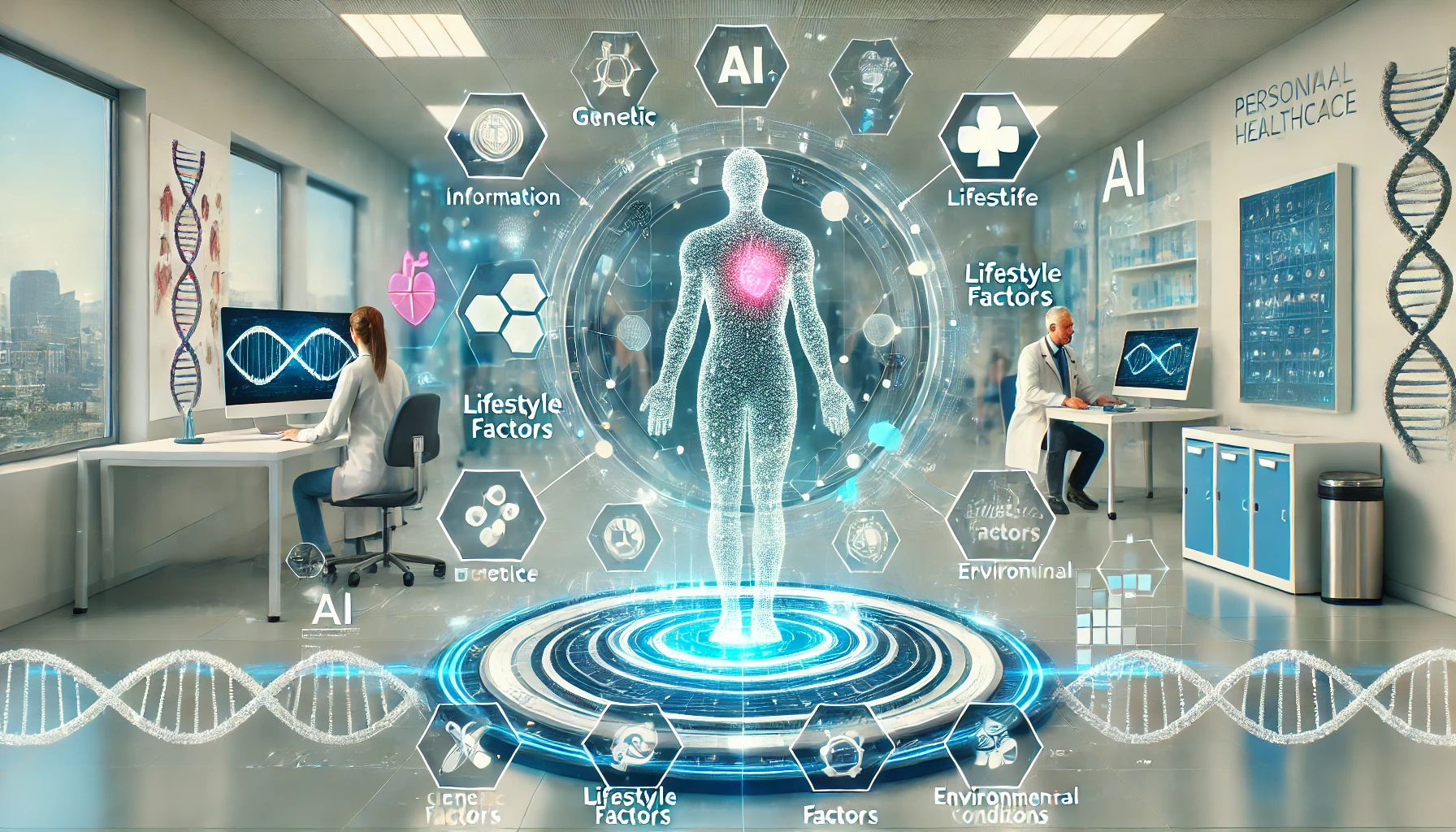AI in Personalized Healthcare: How Tailored Medical Treatments Are Changing the Game

AI and Personalized Healthcare: A Match Made in Silicon Heaven
The healthcare industry has always been about one-size-fits-all solutions — until now. With the rise of artificial intelligence, treatments are getting a personal touch, and no, we’re not talking about your doctor sending you a handwritten note. AI is revolutionizing the way we approach healthcare by tailoring medical treatments based on individual patient data. Think of it as having a personal health assistant that knows you better than you know yourself. Whether it’s analyzing your genetic makeup, factoring in your lifestyle choices (yes, those late-night snacks count), or taking environmental influences into account, AI is pushing healthcare into a personalized future. And the best part? It’s doing all the heavy lifting behind the scenes.
How Machine Learning Algorithms Are Changing the Game
At the heart of this AI revolution are machine learning algorithms. These aren’t your average math equations, folks. These algorithms have a knack for turning data — lots of data — into actionable insights. AI is capable of analyzing massive amounts of patient information in record time. From genetic data to electronic health records, it’s the perfect tool for uncovering patterns that humans simply can’t see. Machine learning sifts through mountains of data and finds the needle in the haystack — or in this case, the precise treatment you need to get back on your feet. For example, AI can now look at your genetic information and predict whether certain medications will work for you, or if they’ll just give you a headache.
Genetics, Lifestyle, and Environment: A Three-Pronged Approach
When it comes to personalized healthcare, AI doesn’t stop at genetics. Sure, your DNA holds a lot of answers, but AI also considers your lifestyle and environmental factors. It’s like having a health guru that doesn’t judge you for skipping the gym. For instance, AI might look at how your diet, exercise routine, and even air quality where you live are impacting your health. This holistic approach allows AI to recommend treatments that work in harmony with your life, not against it. Think about it — wouldn’t it be nice to have a treatment plan that understands your unique circumstances instead of giving you the same prescription as everyone else?
AI-Driven Drug Discovery: The Future of Medicine
AI isn’t just changing how we treat diseases — it’s revolutionizing how we find the drugs to do it. Drug discovery is notoriously time-consuming and expensive, but AI is helping to speed up the process. Using machine learning models, researchers can now simulate how drugs will interact with different molecules in the body. This not only cuts down the time it takes to develop new medications, but it also helps scientists find treatments for diseases that have long stumped the medical community. In oncology, for example, AI is helping to design cancer therapies that target specific genetic mutations, improving outcomes for patients with rare and difficult-to-treat forms of cancer.
AI-Powered Diagnostics: A New Frontier
Let’s face it: getting an accurate diagnosis can feel like hitting the lottery. But AI is making it easier than ever to diagnose diseases early and accurately. By analyzing patient data from medical imaging, blood tests, and other diagnostics, AI can spot issues before they become full-blown problems. One area where AI is making big waves is in the early detection of cancer. With its ability to detect patterns in imaging that are invisible to the human eye, AI is helping doctors catch diseases in their earliest stages — when treatment is most effective. AI-driven diagnostics are especially promising in rare diseases, where traditional diagnostic methods can often take years.
The Ethical Side of Personalized Healthcare
While AI’s ability to personalize healthcare is exciting, it also raises important ethical questions. Who owns your data? How do we ensure AI is used responsibly in medical decision-making? These are just a few of the issues that experts are grappling with as AI becomes more integrated into healthcare. There’s no doubt that AI has the potential to transform the way we approach medicine, but it’s crucial that we do so in a way that protects patient privacy and ensures that everyone has access to the benefits of this technology.
The Road Ahead for AI in Healthcare
The future of AI in healthcare is looking brighter than ever. From personalized treatments to faster drug discovery, AI is poised to revolutionize every aspect of the medical field. But we’re only scratching the surface. As AI continues to evolve, we can expect even more breakthroughs in the way we treat diseases and manage patient care. Whether it’s through AI-driven diagnostics or machine learning-powered drug discovery, the possibilities are endless. So, what’s next? Will AI become your new favorite doctor? Only time will tell, but one thing’s for sure — healthcare will never be the same again.
Conclusion: Are You Ready for the AI-Powered Future of Healthcare?
AI is no longer a futuristic concept reserved for sci-fi movies — it’s here, and it’s changing the way we approach healthcare. From personalized treatment plans to breakthroughs in drug discovery and diagnostics, AI is making healthcare more precise, efficient, and accessible than ever before. As we continue to integrate AI into the medical field, the question isn’t whether AI will revolutionize healthcare, but how fast it will happen. So, are you ready for the AI-powered future of healthcare?



